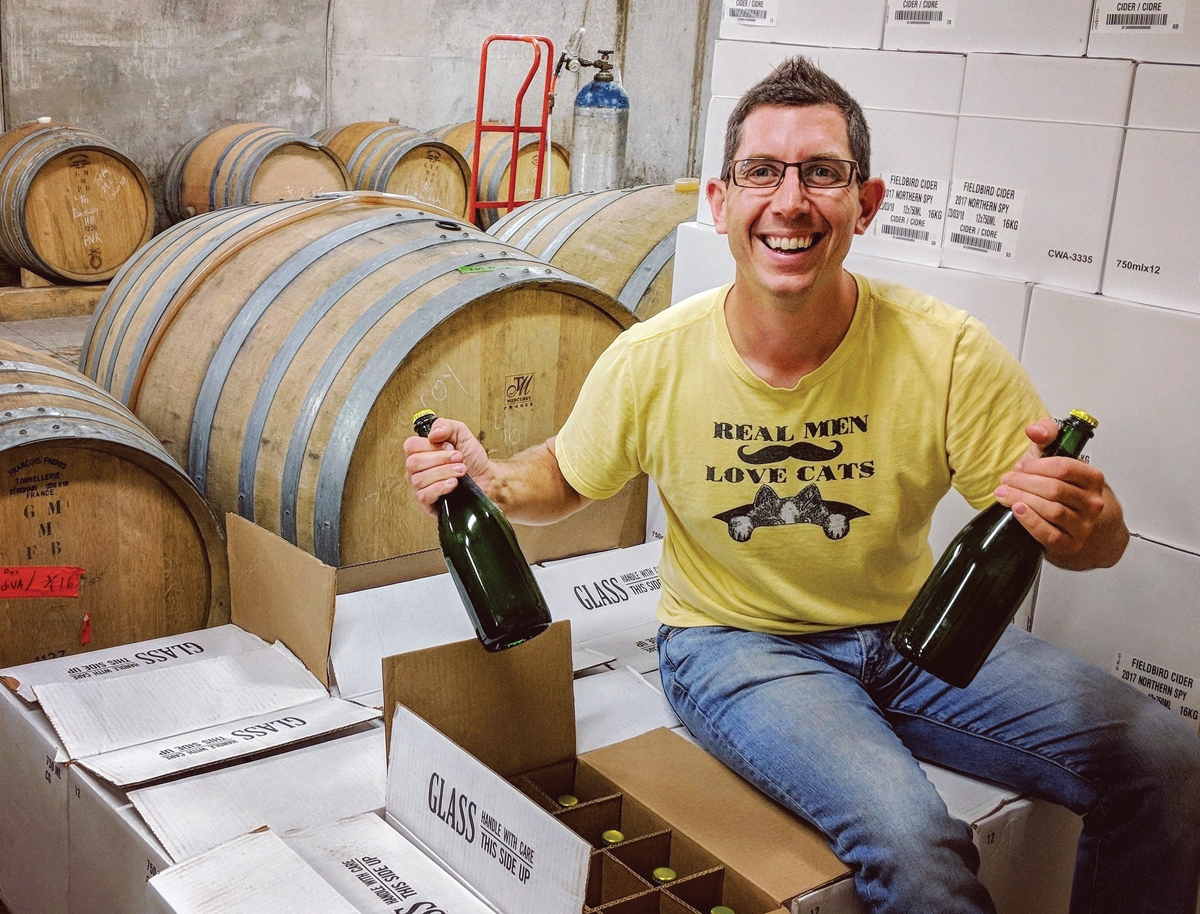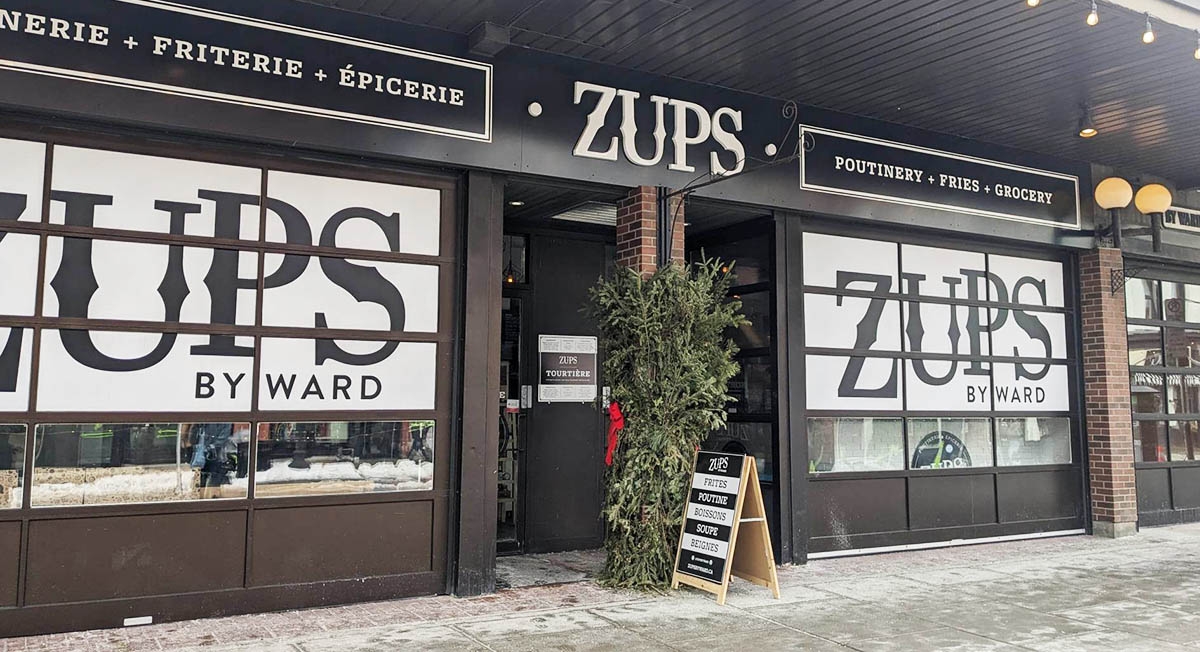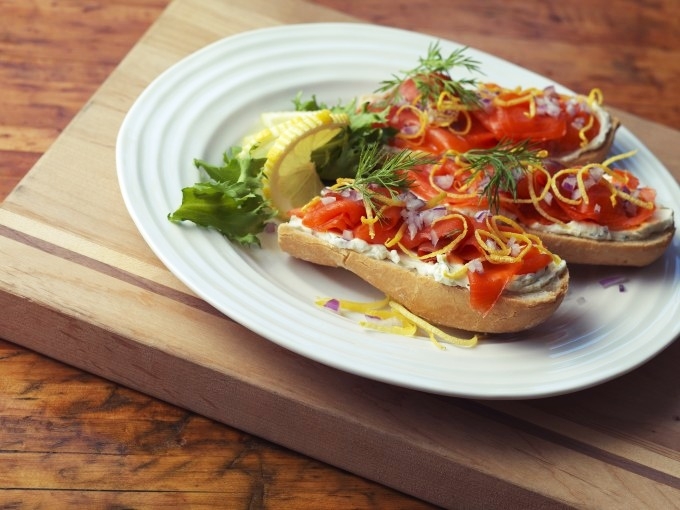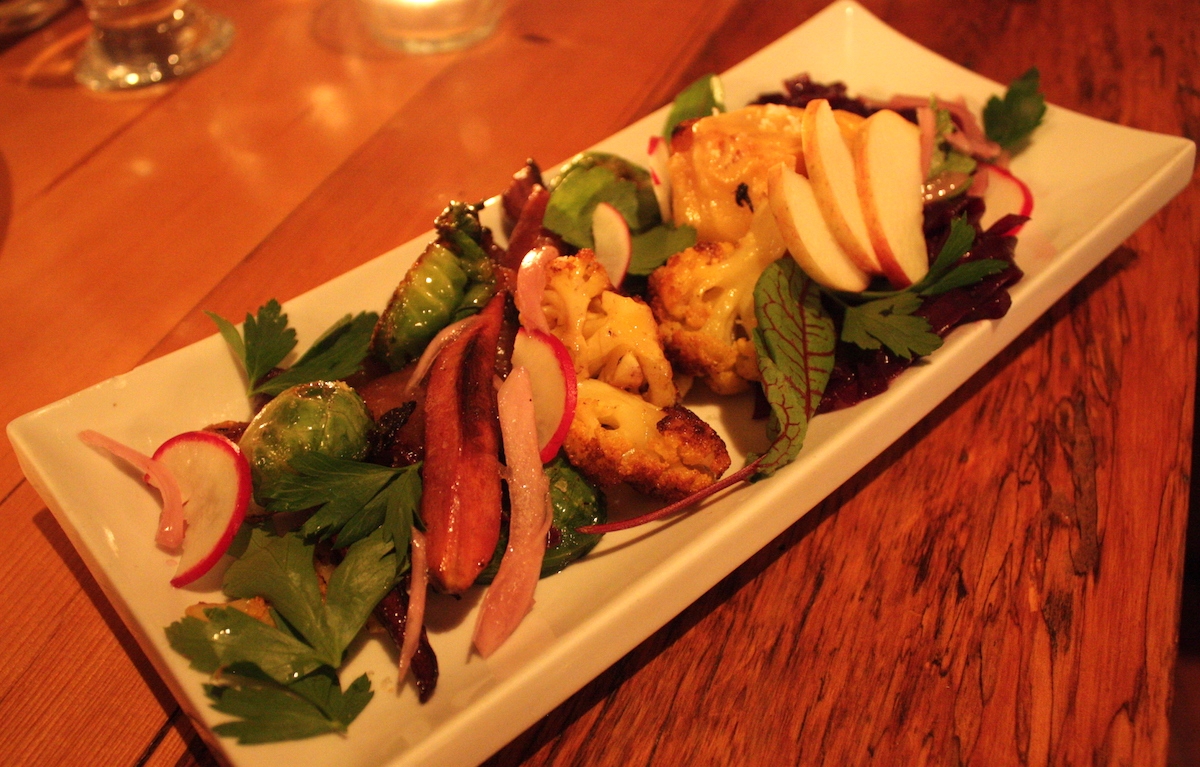
The making of a cidermaker
Photo credit: Nicole Monkman
Have you heard of Apple Falls, County Cider, West Avenue, Farmgate, King’s Mill or FieldBird?
Mark my words, you will soon recognize these craft ciders as the cider industry in Ontario is soaring – like a rocket.
“People in the craft cider business are fantastic,” said Ryan Monkman owner and cidermaker of FieldBird Cider Co. “I wanted to do whatever it took to be part of it. I want to make amazing cider and hangout with these dynamic people.”
Ryan started FieldBird Cider this past spring and there is already an incredible buzz — dare I say cult following — around this new still cider made with hard-to-find Ontario-grown heritage apples.
During our interview — in a pick-up truck driving along the back roads of Prince Edward County — Ryan explained that it has been a rollercoaster ride for him and his wife/business partner Nicole.
Ryan has rural roots, born and raised in Carp and Kanata (with a short stint in England). Nicole is from the wild west. She grew up in Calgary. They met at Queen’s University.
Nicole is the head of the farm, endlessly researching and planning a biodynamic farm primarily consisting of apples and pears orchards, herbs along with sheep and bees.
She is also involved in the cidery, designing the branding, labeling, planning while keeping their toddler out of mischief and getting ready for a baby girl to arrive in a few months.
 Ryan caught the wine bug while making Brew-Your-Own.
Ryan caught the wine bug while making Brew-Your-Own.
His first cider experiment resulted as he described as, “the most disgusting cider ever.”
Never giving up, he enrolled at the Niagara College Teaching Winery where he immersed himself in the program.
“I went to school more than full time. I took a wide variety of winemaking courses, did research on everything, and soaked up any opportunity to learn about the business.”
His charismatic nature led him to meet people in the industry who helped him become a ‘Craft Cidermaker to Watch’ (that’s my prediction).
I asked Ryan who inspired him. His humble words resonate the authenticity that attracts people to Ryan, who naturally want his virtual cidery and newly-planted farm to grow. Here’s what he said about his major influences.
(Brian Hamilton: Biodynamic focused winemaker at Niagara’s Southbrook Vineyards and recently moved to Ottawa to be winemaker at KIN Vineyards in Ottawa Valley)
“I had to write an essay four years ago and I picked Biodynamics as my topic. Biodynamics is a form of organic agriculture that incorporates spiritual practices. I wanted to see if there were scientific basis or if it was just another church with a different name."
When touring Southbrook Vineyards, a Biodynamic farm, I asked to meet with Brian. He was pulling away in his car and I flagged him down. “Come by on Thursday. You can help me and I’ll answer any questions you’ve got.”
Brian led me to a dim lit shed at the edge of the field. Imagine something from a horror film; a heap of cow horns waited for us with several buckets. Most of the buckets were brimmed with fresh manure. Two were empty. “Grab one” Brian said.
I sat on an inverted bucket. I grabbed a cow horn and filled it with manure. We talked about farming for a few minutes. I asked what the horn manure was for. And I asked about companion plants. Our conversation drifted around — friendships are formed in those unplanned moments.
Brian converted me. I left that shed a believer in Biodynamics. It wasn’t because I learnt anything, although I did, it was because I discovered the generosity, openness and vulnerability of Brian. I admire him so much. Biodynamics has played a role in making him the farmer he is and I knew I wanted in.”
(Derek Barnett: Renowned winemaker in Niagara whose career includes Southbrook Vineyards, Lailey Vineyard, Karlo Estates in Prince Edward County and now his own virtual winery, Meldville Wines)
“Today started at 4 a.m. It’s my first major pressing day of Vintage 2018. I know that I’m going to be working late and probably won’t see my family. On days like these, I live by what Derek told me. “During harvest, make sure to have dinner with your family.” It was a tradition he started with his own family back when he farmed corn. His wife would bring their children for a picnic with Dad. After dinner, Derek would give his kids a ride on the combine. For most of harvest season, it was the only time they had together.
What sets Derek apart is the depth of his affection for the people surrounding him. He’s forgiving, supportive and encouraging. He's more interested in having a robust Canadian wine industry than winning awards for his wines.
Three years ago, I met Derek. Two years ago, we made wine together at Karlo Estates. Now we’re friends. Derek’s the guy who answers my panicked phone calls when running my virtual cidery becomes overwhelming. He helped me refocus my life; that family is more important than wine.”
(Gavin Robertson: Winemaker and professor at Niagara College Teaching Winery)
“I thought I wanted to lead wine tours. When we moved to Niagara, I began taking courses in wine appreciation. To complete the program, it was required to take one production course. Gavin taught that course.
In his first lecture – before we even stepped into the winery – Gavin gave us a rundown of each winemaking step. There’s something called malolactic fermentation. It’s done on some white and almost all red wines. It’s a secondary type of fermentation that happens when wine ages. Tiny bacteria convert malic acid into lactic acid. It softens the wine and adds a wonderful creamy texture.
“An interesting thing is that the bacteria don’t produce any heat” Gavin explained, “they don’t use the process for energy; they do it to make the wine a better place to live”.
That got me hooked. I wanted to know who these bacteria were and why they seemed so personable. Mostly, I wanted to hang around someone like Gavin; someone who saw winemaking as something alive. Gavin instilled in me that the goal of a good winemaker is to reveal what the fruit has already decided it wants to be. It’s just the beginning."
Ryan has only just started making FieldBird Ciders.
Each batch gets more interesting. Different flavour profiles, blends and various apple varieties involved.
Ryan is not dappling with apples, he has extensive experience. He consults for five other new craft cideries in Ontario and helps with the winemaking at three soon-to-open boutique wineries.
If you’re keen to meet Ryan, you won’t find FieldBird listed on the Prince Edward County map. It is a virtual cidery, meaning that it does not have building with a sign out front.
Rather, Ryan and Nicole share equipment and cellar space at Keint-He Winery and Vineyard.
This communal approach ensures that FieldBird has the capacity to grow its business organically while establishing its biodynamic farm.
FieldBird Ciders are only available to purchase at Keint-He . . . and if you visit during lunch or dinner time, you just might find Nicole and Linden having a picnic with dad.
Follow the FieldBird Cider story on Instagram @fieldbird.cider
Debbie Trenholm is a sommelier and the founder of Savvy Company.













